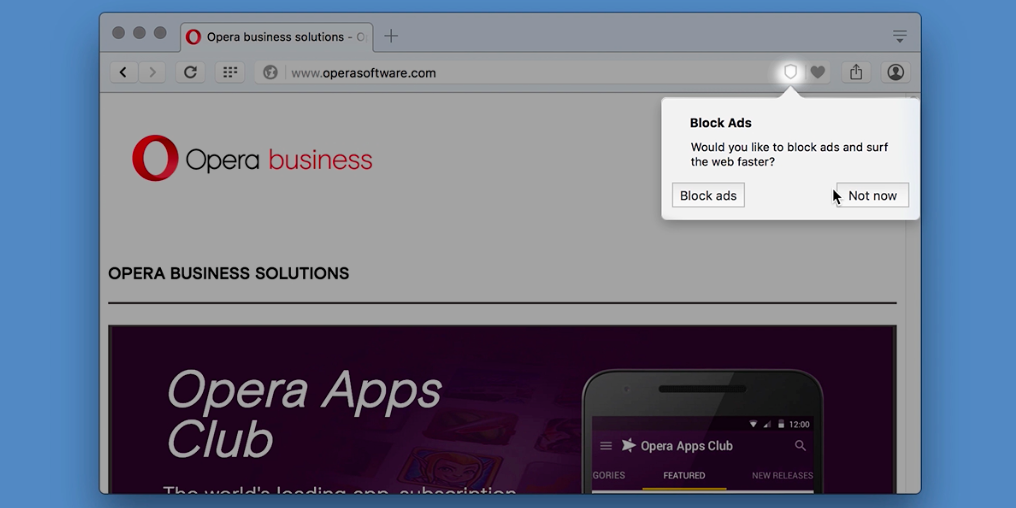According to a 2015 Adobe survey, 41% of people use ad-blocking tools on their browser while browsing through the internet.
From these stats, we can conclude that more and more people have the need to block ads being served to them when they are visiting various sites online. It would appear that Opera Software ASA has listened to the growing need by users to block ads, and the browser maker has decided to integrate natively ad-blocker into the Opera browser.
Opera further argues that a natively integrated ad-blocker into the browser will improve page-load time and performance compared to their plug-ins alternatives.
While ad-blockers may make users happier given they are less likely to see ads that will tempt them to spend. Website owners especially those depending on ads to monetize their online activities are completely pissed off with the prospects ad-blocker being natively integrated into a popular browser like Opera. Perhaps other popular browsers like Chrome and Firefox might soon follow suit.
Online publishers like Forbes and Wired are working on a mechanism that will bar users using ad-blockers from visiting sites. Opera justifies its move as a mean to speed up page loads and safeguard users’ privacy.
Apparently blocking ads makes web pages load 45 percent faster and in other instances even fasters. Opera says, “We believe it’s time for ads to be lighter and faster.” The company points out users prefer lighter ads; heavy ads are the headaches of websites.
By default, the proposed ad-blocker will be disabled on Opera browser. However, users can turn it on with just a single click. Opera will use EasyList’s list to block ads.




